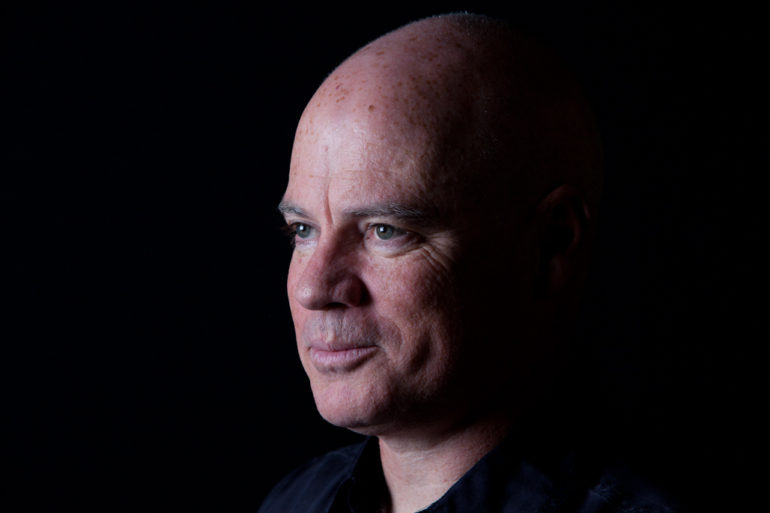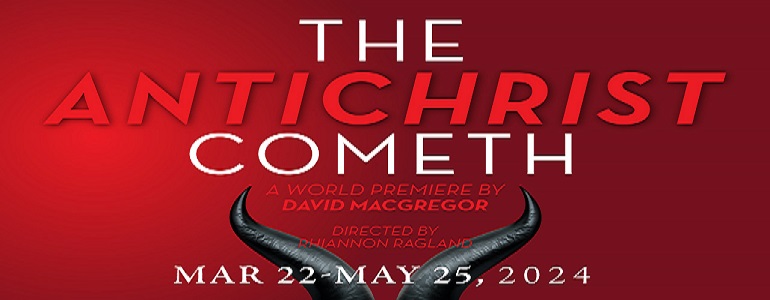There is a point in the process where a writer turns over his or her baby – and it really is their baby – to a theatre production company, and the writer is no longer in control of what happens next. What happens next though is a group of extremely talented people taking words on a page and bringing it all to life.
It’s a very exciting time even though time is always limited once the clock starts ticking on a new production. Renowned writer David MacGregor handed over the world premiere of “Sherlock Holmes and the Adventure of the Fallen Soufflé” to the Purple Rose in September and what happened next was in the very capable hands of director Michelle Mountain.
MacGregor’s “baby” was about to grow up and the proud parent was pretty much left on the sideline – or in this case, sitting in the Purple Rose Theatre seats observing.
In the theatre world there is a chain of command when it comes to getting a new play up and running and the director is the commander and chief. MacGregor says without that protocol in place there would be chaos if everyone was bringing up ideas and suggestions with everyone else.
“It helps that I know all of the people working on this are not only extremely talented but also very passionate about what they do,” he says. “So it’s not like I need to give very much input while they are putting it together. They are extremely motivated. But if I see something that intrigues me or some idea I have then I will pass it along to the director. If she feels it is worth exploring, then she will bring it up with the actor or actors.”
 “Sherlock Holmes and the Adventure of the Fallen Soufflé” is the sequel to David MacGregor’s hit play, “Sherlock Holmes and the Adventure of the Elusive Ear,” presented at the Purple Rose Theatre Company in the Spring of 2018. The sequel opened on Sept. 19 and runs through Dec. 21.
“Sherlock Holmes and the Adventure of the Fallen Soufflé” is the sequel to David MacGregor’s hit play, “Sherlock Holmes and the Adventure of the Elusive Ear,” presented at the Purple Rose Theatre Company in the Spring of 2018. The sequel opened on Sept. 19 and runs through Dec. 21.
MacGregor, who has penned some impressive plays including “Vino Veritas,” (later made into an indie film), “Consider the Oyster,” “Scrooge MacBeth,” and the Pulitzer-nominated “Gravity,” says writing a play isn’t like writing a novel.
“It’s more like a blueprint because you don’t really know what it’s going to look like and how people are going to respond until it’s up on its feet,” he said. “I was really pleased with the finished product and really pleased with how the audience has been responding to it.”
They have been responding to it at the box office by packing the theatre every night. It’s another big hit for MacGregor, The Purple Rose and the Sherlock Holmes series.
And a theater room of people deserve to take bows for its great success.
MacGregor, Mountain, Purple Rose Artistic Director Guy Sanville, the incredible actors, the set and costume designers, the sound people and so many more have helped make this play something truly special.
“The best part about the collaborative art form is that you get to see what others bring to your idea,” MacGregor said. “I get to see what an actor brings to a part, what a costume designer brings to a part. Individually, everybody can do their little bit but collectively is where it really becomes magical.”
 Because of how the Purple Rose is set up, MacGregor says the people in the audience are almost part of the play themselves. “They are like another character,” he says. “I’ve always been drawn to that.”
Because of how the Purple Rose is set up, MacGregor says the people in the audience are almost part of the play themselves. “They are like another character,” he says. “I’ve always been drawn to that.”
“Sherlock Holmes and the Adventure of the Elusive Ear” did very well, basically selling out during the run last year. The Purple Rose commissioned MacGregor to write two more plays, and while they proceed chronologically, they each stand on their own as a separate story.
“In each one of the plays there are the four main characters, Sherlock Holmes, Dr. Watson, Irene Adler and Marie Chartier, along with two historical characters,” says MacGregor, who also teaches English composition at Wayne State.
Of course, it helps to be well-versed in the world of Sherlock Holmes.
MacGregor, who graduated from Michigan State University in 1981 with a degree in psychology, has long been intrigued and fascinated with Sir Arthur Conan Doyle’s fictional hero Holmes, the pipe-smoking, cerebral 19th-century detective.
“I’ve always liked that time and era in history and literature,” he says. “I think Sherlock Holmes is the greatest fictional character ever. He embodies so much of what makes human beings so spectacular. He reads the world and makes sense of it. He represents the positive side of heroism and I’ve always been drawn to him.”











